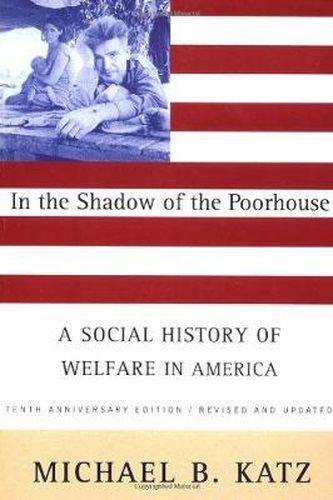Readings Newsletter
Become a Readings Member to make your shopping experience even easier.
Sign in or sign up for free!
You’re not far away from qualifying for FREE standard shipping within Australia
You’ve qualified for FREE standard shipping within Australia
The cart is loading…






With welfare reform a burning political issue, this special anniversary edition of the classic history of welfare in America has been revised and updated to include the latest bipartisan debates on how to end welfare as we know it. In the Shadow of the Poorhouse examines the origins of social welfare, both public and private, from the days of the colonial poorhouse through the current tragedy of the homeless. The book explains why such a highly criticized system persists. Katz explores the relationship between welfare and municipal reform; the role of welfare capitalism, eugenics, and social insurance in the reorganization of the labor market; the critical connection between poverty and politics in the rise of the New Deal welfare state; and how the War on Poverty of the 60s became the war on welfare of the 80s.
$9.00 standard shipping within Australia
FREE standard shipping within Australia for orders over $100.00
Express & International shipping calculated at checkout
With welfare reform a burning political issue, this special anniversary edition of the classic history of welfare in America has been revised and updated to include the latest bipartisan debates on how to end welfare as we know it. In the Shadow of the Poorhouse examines the origins of social welfare, both public and private, from the days of the colonial poorhouse through the current tragedy of the homeless. The book explains why such a highly criticized system persists. Katz explores the relationship between welfare and municipal reform; the role of welfare capitalism, eugenics, and social insurance in the reorganization of the labor market; the critical connection between poverty and politics in the rise of the New Deal welfare state; and how the War on Poverty of the 60s became the war on welfare of the 80s.